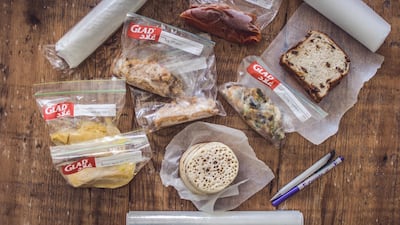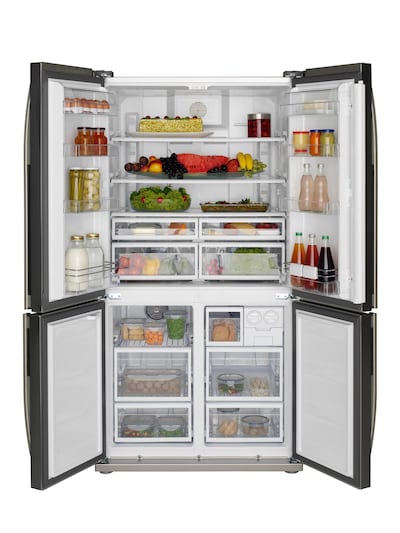The freezer is the unsung hero of every kitchen. And as we all buckle down and spend more time indoors, our freezers will be instrumental in helping us reduce food waste, save money and avoid unnecessary trips to the supermarket.
A barely stocked freezer is more expensive to operate than one that is nearly full – frozen foods help keep everything else in the vicinity frozen – so it’s time to get stocked up. Here are some things that you might not know are freezable.
Nuts: Because they contain such high levels of fat, nuts can quickly go rancid. Extend the shelf life of shelled or unshelled peanuts, walnuts, pecans, cashews, macadamia nuts, hazelnuts and almonds by wrapping them in plastic and then placing them in a resealable freezer bag.
Eggs: You can freeze raw eggs, but only once they've been removed from their shell. Otherwise they will expand and crack the shell. Your best option is to crack individual eggs into a muffin tin, beat them and then place in the freezer. Hard-cooked egg whites will become tough and rubbery, so give these a miss.
Cooked rice, quinoa and grains: Cook, leave to cool then store in plastic freezer bags. When you are ready to eat, pop them in the microwave for a minute, or warm with a little liquid on your stove.
Bread: Wrap fresh loaves in airtight plastic wrap and place in the freezer. Remove slices, as needed, and toast lightly. Crusty breads such as baguettes will not fare as well. Flour can also be used directly from the freezer.
Milk: Place milk into a freezer-safe container, but make sure to leave space at the top for the liquid to expand. When you're ready to use it, thaw it out in the fridge and use for cooking only. Butter and margarine can also be frozen for up to three months.
Ripe bananas: Don't waste those bananas once they start to brown. Peel and store in resealable bags, and then use them to create creamy smoothies or banana bread.
What should you never freeze?
Salad leaves and raw vegetables with a high water content, such as lettuce, cucumbers and bean sprouts, don’t freeze well. They will become limp and entirely unappealing. Potatoes will also become mushy if you freeze them raw. Egg-based sauces, such as mayonnaise, will separate and curdle.
Expert tips
- Wrap your food in plastic bags or clingfilm to reduce the chance of "freezer burn", which happens when air comes into contact with frozen food.
- Never put glass containers and jars in the freezer – the extreme temperatures could cause them to shatter.
- Put newer items at the back of your freezer and older ones near the front, so they don't get forgotten about.
- Label packages so things are easy to find and identify. If you have space to mark the date of freezing on there, all the better.
- Let all food reach room temperature before freezing.
- Try to freeze things when they are at their freshest.
- Make sure the freezer isn't packed so full that air can't circulate.
- Most things can be frozen for between three months and a year.
- If there has been a power cut or your freezer has been switched off for any other reason, do not open the door. If left alone, your foods can safely remain in the freezer for up to 24 hours.






